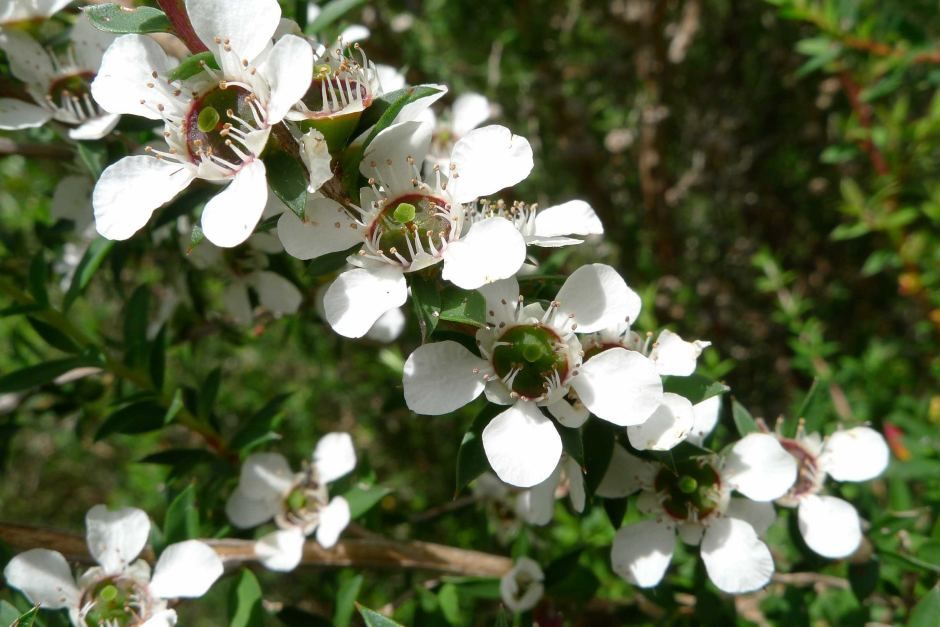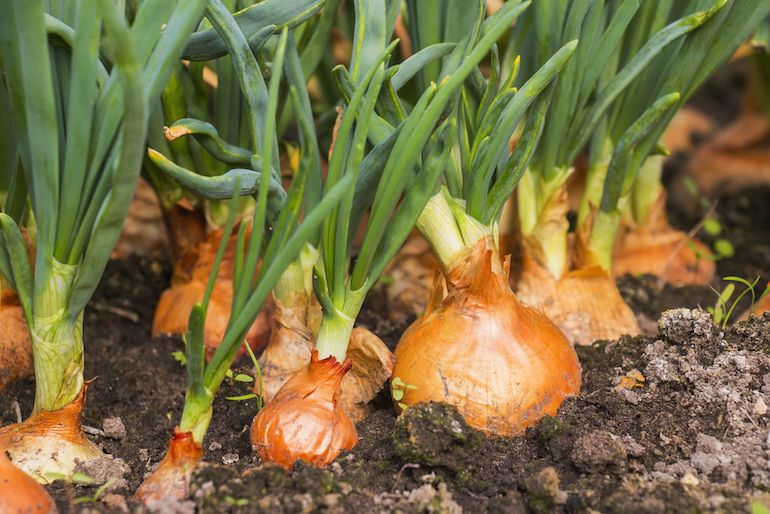


16 Plants for Mosquito Repellent You Can Plant at Home
Plants have many benefits, apart from improving the quality of the air around them and adding to the aesthetics of the house, they also function as a mosquito repellent. Some types of plants contain certain substances that mosquitoes dislike, making them suitable for planting around the house.
In this article, Flokq will recommend the best mosquito repellent plants that can be an option to fight mosquitoes at home and still be able to maintain the aesthetics of the yard and room of the house. Before identifying the types of mosquito repellent plants, it is also good to know why mosquitoes should be avoided. Just how dangerous is that little creature?
The Dangers of Mosquitoes and the 5 Diseases They Carry
Mosquitoes are a type of insect that most of us encounter everyday. Despite their small size, the viruses and diseases they carry with them can infect humans, and in extreme cases, can cause death. Before getting to know what plants can repel mosquitoes in your home, Flokq will provide information about the following 5 diseases caused by mosquitoes:
1. Dengue Fever



Dengue fever is an infection caused by the dengue virus. The dengue virus itself is transmitted by Aedes aegypti mosquitoes. In Indonesia, dengue fever or DHF, is one of the diseases carried by mosquitoes with the highest levels of danger and death.
According to a study, this dengue mosquito species prefers to perch indoors and the Aedes Aegypti mosquito bite is more active during the day. These mosquitoes like dark and humid places, so they are more often found indoors than outdoors that is hot, you know!
Dengue hemorrhagic fever can make sufferers experience severe pain as if the bones are crushed. Blood pressure can also drop drastically, to a crucial level and cause death.
2. Chikungunya



Chikungunya is a virus transmitted by Aedes mosquitoes. The name Chikungunya itself, comes from the ethnic Makonde which means “bowing”. Slouching here refers to the posture of the person exposed to the virus that originates from this mosquito. Patients who are exposed, will feel excruciating joint pain continuously.
In general, the symptoms of the chikungunya virus are not much different from dengue fever, it’s just that at some point sufferers of this virus will find it difficult to move because of the intense joint pain. Entering the rainy season, Indonesians must be extra careful, because the level of exposure to the chikungunya virus will increase at the beginning and end of the rainy season.
3. Malaria



Malaria is a disease caused by the Plasmodium parasite. No less dangerous than DHF, malaria is also a dangerous and deadly disease that can be transmitted by mosquitoes. Plasmodium parasites perched and carried by Anopheles mosquitoes will infect and multiply in the human liver before destroying red blood cells.
Symptoms of malaria will develop after 7-18 days of the incubation period, and exposed patients will experience symptoms such as high fever, headache, persistent sweating, chills, vomiting, and in some cases, yellow patches on the body surface. This disease must be watched out for those of you who come or return from the Papua, East Nusa Tenggara, West Papua, Central Sulawesi, and Maluku regions.
4. Elephantiasis



Elephantiasis or filariasis is swelling of the legs due to filarial worm infection. This worm attacks the lymph vessels and is transmitted by the bite of Culex and Mansonia mosquitoes. Apart from the legs, other parts of the body, such as the arms and chest, can also experience swelling.
Unfortunately, patients who are newly exposed to this disease will not feel any symptoms – the effect will be seen when the skin on the legs is swollen and thickened, dries out, becomes darker, cracks and when chronic, sores can appear.
The way to avoid this disease is to continue to keep the water in your home clean since mosquitoes that carry these worms are more often found in humid areas and dirty water.
5. Zika



The Zika virus is a virus that spreads through an intermediate bite of the Aedes Aegypti mosquito. This type of mosquito is the same type of mosquito as the mosquito that spreads the dengue, chikungunya, and yellow fever viruses. This virus is actually still in the same family as DHF, it’s just that there are some differences in symptoms of illness.
The difference is that the Zika virus’ fever can attack for several days or weeks and then subsides. Compared with dengue sufferers, fever can last for weeks and can cause bleeding and bruising and result in death.
16 Types of Mosquito Repellent Plants
1. Lavender



First on the list is the famous Lavender. It is one of the more beautiful mosquito repellent plants. Moreover, the vibrant purple color makes it suitable as a home decoration. For humans, the aroma of lavender is very soothing, while mosquitoes themselves do not like this scent. It’s linalool and linalyl acetate produces the lavender aroma. Both of which are able to repel mosquitoes. Therefore, people often use lavender as an anti-mosquito lotion.
2. Lemongrass



People usually use lemongrass as a spice in cooking, but also for mosquito repellant. This versatile plant contains substances called citronellol and geraniol. The two substances emit odors that are not mosquitos dislike. In fact, the content of this substance can make mosquitoes die, quite straightforward for a mosquito-repelling plant.
3. Kemangi leaf



This makes this plant suitable as decoration. In addition to its beautiful appearance, it turns out that this plant has properties to repel mosquitoes. This plant contains eugenol, linalool, and geraniol compounds that give mosquitoes a strong aroma.
4. Frangipani



People often find this plant to have a certain supernatural trait because it shows up often in cemeteries. Many also believe Frangipani flowers to be effective in repelling mosquitoes. People say it’s because of its aroma. This plant also has very beautiful flowers, in various colors. In addition, this plant can live long to tens of years.
5. Eucalyptus
Not only useful as a base for rubbing oil, but eucalyptus can also work as a mosquito repellent plant. Its distinctive and strong aroma is guaranteed to keep mosquitoes away from your home. Simply place the pot containing the eucalyptus plant in the room. This plant will work to ward off mosquitoes in the house.
6. Tea tree



Popular as an ingredient in skincare, the tea tree or melaleuca plant is one of the most effective plants to repel mosquitoes. Its strong aroma makes mosquitoes lazy to approach. Even though mosquitoes hate the scent, you and your family will actually feel more comfortable because of the fragrant aroma of the wood.
7. Marigold



Marigolds are plants that have unique yellow to orange flowers. This beautiful plant is also useful to repel mosquitoes due to the very pungent aroma and somewhat smelly. In addition, to repel mosquitoes, marigolds can also prevent aphids, whiteflies, worms, and roundworms.
8. Rosemary



The next one is pretty familiar as people often use rosemary as a spice in cooking, aromatherapy, or air freshener. However, the aroma of this rosemary actually keeps mosquitoes away. This is because the aroma is like eucalyptus oil. The aroma is very sharp so that it makes the mosquito dizzy and loses its senses.
9. Bawang Putih



Did you know that garlic is one of the most effective mosquito repellent plants? Its distinctive smell makes mosquitoes reluctant to come close to this plant. Garlic is indeed an extraordinary plant because it is easy to find, easy to grow, and has many uses.
10. Basil leaf
A beautiful appearance is what you get from basil leaf. This makes the plant decent as decoration. Besides its beautiful appearance, it turns out that this plant has the benefit of repelling mosquitoes. This is because this plant contains eugenol, linalool, and geraniol compounds which emit a pungent aroma for mosquitoes.
11. Cloves
Cloves, which mostly grow in the highlands, have a distinctive aroma that mosquitoes hate. You can plant this plant to take advantage of its function as spices, medicinal ingredients, and mosquito repellents.
12. Chrysant
Chrysanthemums, which we often know as ornamental flowers, actually emit a special scent that mosquitoes hate. By planting these flowers at home, you can beautify your home and repel mosquitoes.
13. Lemon Balm



Usually, many people use this plant in a beverage and medicinal ingredient. However, this plant contains citronellal substances that mosquitoes do not like and which would work to repel mosquitoes. Therefore, besides Lavender, extracts from this plant can also work as an anti-mosquito lotion and have a refreshing aroma.
14. Lantana Camara



Next on the list is Lantana Camara. It’s an ornamental plant that has beautiful little flowers and substances that mosquitoes dislike This plant has phytochemical compounds in lantana that have triterpenoids to oleanolic acid which feared by mosquitoes.
15. Catnip



This plant has the name Nepeta cataria, or also popularly known as catnip. The name ‘catnip’ is because this plant is often causing cats to act cute and become more active. This catnip plant contains nepetalactone oil. Mosquitoes dislike them so that this plant can be classified as a mosquito repellent plant.
16. Zodia



This plant thrives in the land of Papua. However, now we can easily find it. Residents of Papua usually use the plant before entering the forest by rubbing it on the body. Zodia contains substances that mosquitoes dislike. This is similar to other mosquito repellent plants. These substances are evodiamine and rutaecarpine. In addition, zodia are also efficacious to increase stamina and treat malaria tablets.
What do you think of the mosquito-repellent plants as our recommendation? Are you interested to try it to reduce the number of mosquitoes in your home? Don’t forget to save this article to make it easier for you to have mosquito repellent plants.
Also read: Best Places to Buy Plants in Jakarta
If you want to know about co-living opportunities in Jakarta, click here.

No Comment